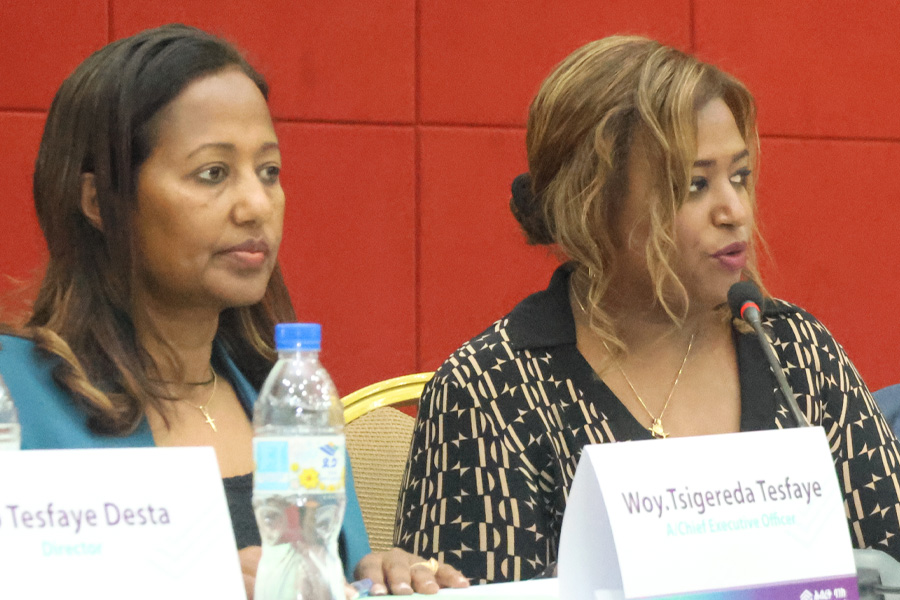
Sunday with Eden | May 24,2025
Apr 22 , 2023
By Jayati Ghosh
Given that such conditions may not always exist and because retrenchment tends to impede GDP growth, austerity has rarely led to positive outcomes in debt-distressed countries, argues Jayati Ghosh, a professor of economics at the University of Massachusetts Amherst, in this commentary provided by Project Syndicate (PS).
It has taken far too long, but it seems that the International Monetary Fund (IMF) has finally internalized some hard truths about sovereign-debt reduction. Chief among them is that growing economies have an easier time repaying. As such, fiscal consolidation – the organization's favoured strategy – undermines efforts to reduce debt-to-GDP ratios because it inhibits economic growth.
To be sure, this is hardly a new insight.
John Maynard Keynes emphasized it nearly a century ago, and many have reiterated it ever since. It was certainly known to the negotiators who crafted the London Debt Agreement of 1953, which dramatically reduced West Germany's burden of public debt. The agreement between Germany and 20 of its external creditors provided favourable repayment terms linked to the country's future exports, creating the conditions for its postwar economic boom.
Still, better late than never. The IMF's latest World Economic Outlook presents the results of its investigation into various debt-reduction programs undertaken by 33 emerging-market economies and 21 developed economies between 1980 and 2019.
"On average," the authors note, "consolidations do not lead to a statistically significant effect on the debt ratio." Instead, they find that higher GDP growth – "as captured by positive demand and supply shocks together" – is "an important force" responsible for roughly one-third of the observed debt reduction during that period. The analysis even recognizes that fiscal expansion improved debt ratios in several cases, largely due to its positive effect on GDP growth.
Fiscal consolidation, the authors note, is more likely to reduce debt in a growing economy, under favourable financial conditions. But, given that such conditions may not always exist and because retrenchment tends to impede GDP growth, austerity has rarely led to positive outcomes in debt-distressed countries.
As the IMF report notes, "unanticipated transfers" to state-owned enterprises and unexpected exchange-rate depreciations could undermine debt-reduction efforts. What the report does not mention, however, is that these developments are often an unintended consequence of the IMF's own programs, which tend to require indebted countries to shift to market-determined exchange rates, raise interest rates, and cut state subsidies, thereby driving up business costs. By contrast, the report finds that debt-restructuring efforts have been more successful when they helped countries restore growth and avoid economic decline.
While this will not come as a shock to anyone who has tracked growth trajectories over the past half-century, the IMF's influence over countries' macroeconomic policies, and the growing number of governments in need of debt restructuring, makes the Fund's change of heart highly consequential. For decades, IMF programs have assumed that cutting public spending was the only way to deal with debt distress. Now, the Fund seems to be acknowledging its past mistakes.
But it is unclear whether this welcome (albeit late) volte-face will extend beyond the IMF's research department and how it might affect the Fund's lending activities. Early indications are not promising. IMF leadership has repeatedly called for faster and more effective sovereign-debt restructuring, and, to its credit, has recently set up a roundtable of public-private creditors to hasten the process. But the response so far has been slow, cumbersome, inadequate, and mostly ineffective.
Countries that have sought help under the G20's Common Framework for addressing debt distress in the developing world have faced inordinate delays, geopolitical wrangling, and unresponsive creditors.
Worse, the IMF's staff seems to be unaware of its latest report or has chosen to ignore it. The Fund's recent financing programs include onerous conditions that will most likely damage developing countries' populations and economies.
For example, the recent agreement between the IMF and Sri Lanka emphasizes fiscal consolidation, requiring the government to achieve a budget surplus within two years. It also conditions its funding on increases in energy tariffs, flexible exchange rates that will likely lead to currency devaluation, and higher interest rates. The program (unrealistically) projects higher revenues without imposing wealth taxes or restricting illicit financial flows. All this will reduce demand in a country already reeling from 53.6pc inflation, causing the economy to contract further.
A similar focus on fiscal balance is evident in other proposed IMF programs in Ghana and Zambia.
The IMF is not alone in this.
A new wave of austerity is building as governments scale back public spending. With the world facing a confluence of economic and political crises, the return of austerity could have dire consequences, and not just for economic activity. It could also imperil global health at a time when future public-health threats are increasingly likely, in addition to hampering our ability to address climate change.
This is not just unnecessary – it is willfully harmful. When certain "solutions" have been shown to fail, or make the problem worse, they must be abandoned. While it is undoubtedly a step in the right direction that IMF researchers have finally acknowledged the obvious, it is not enough. After decades of causing avoidable misery, it is time for the IMF to put its money where its mouth is.
PUBLISHED ON
Apr 22,2023 [ VOL
24 , NO
1199]


Sunday with Eden | May 24,2025

Radar | Aug 07,2021

Radar | Jun 29,2025

Agenda | May 31,2025

In-Picture | Sep 14,2024

Radar | Sep 03,2022

Radar | Dec 01,2024

Radar | Jul 17,2022

Verbatim | Dec 24,2022

Delicate Number | Sep 01,2024

Photo Gallery | 180130 Views | May 06,2019

Photo Gallery | 170327 Views | Apr 26,2019

Photo Gallery | 161343 Views | Oct 06,2021

My Opinion | 137245 Views | Aug 14,2021

Dec 22 , 2024 . By TIZITA SHEWAFERAW
Charged with transforming colossal state-owned enterprises into modern and competitiv...

Aug 18 , 2024 . By AKSAH ITALO
Although predictable Yonas Zerihun's job in the ride-hailing service is not immune to...

Jul 28 , 2024 . By TIZITA SHEWAFERAW
Unhabitual, perhaps too many, Samuel Gebreyohannes, 38, used to occasionally enjoy a couple of beers at breakfast. However, he recently swit...

Jul 13 , 2024 . By AKSAH ITALO
Investors who rely on tractors, trucks, and field vehicles for commuting, transporting commodities, and f...

Nov 1 , 2025
The National Bank of Ethiopia (NBE) issued a statement two weeks ago that appeared to...

Oct 25 , 2025
The regulatory machinery is on overdrive. In only two years, no fewer than 35 new pro...

Oct 18 , 2025
The political establishment, notably the ruling party and its top brass, has become p...

Oct 11 , 2025
Ladislas Farago, a roving Associated Press (AP) correspondent, arrived in Ethiopia in...

Nov 2 , 2025
The National Bank of Ethiopia (NBE) has scrapped the credit-growth ceiling that had s...

Nov 2 , 2025 . By SURAFEL MULUGETA
The burgeoning data mining industry is struggling with mounting concerns following th...

Nov 2 , 2025 . By YITBAREK GETACHEW
Berhan Bank has chosen a different route in its pursuit of a new headquarters, opting for a transitional building instea...

Nov 2 , 2025 . By BEZAWIT HULUAGER
Nib International Bank S.C. has found itself at the epicentre of a severe governance...